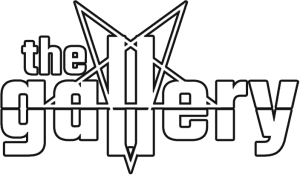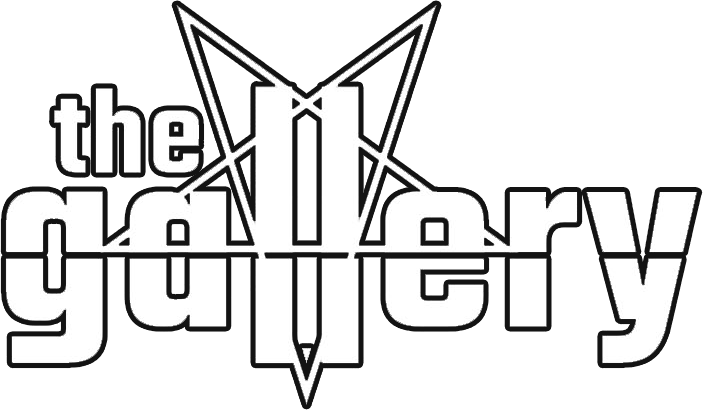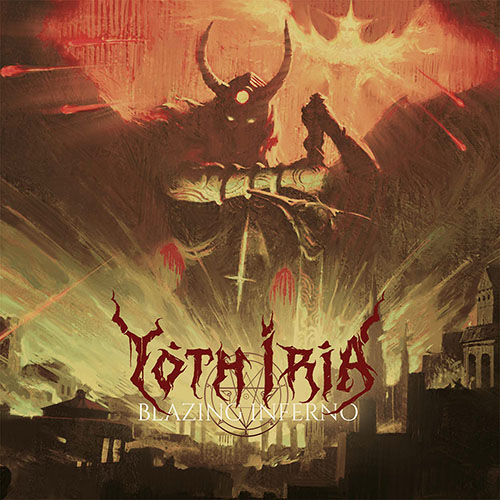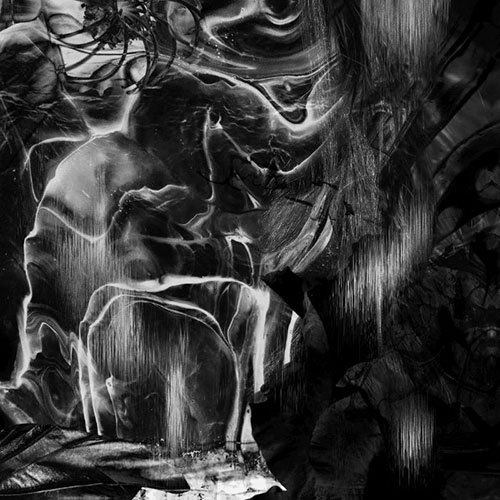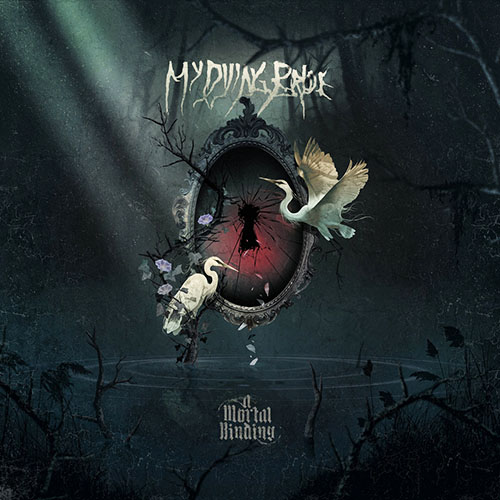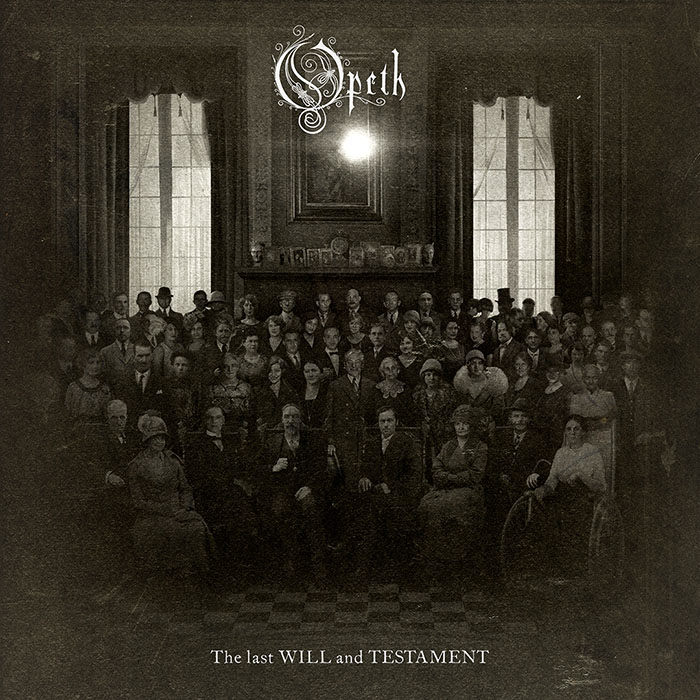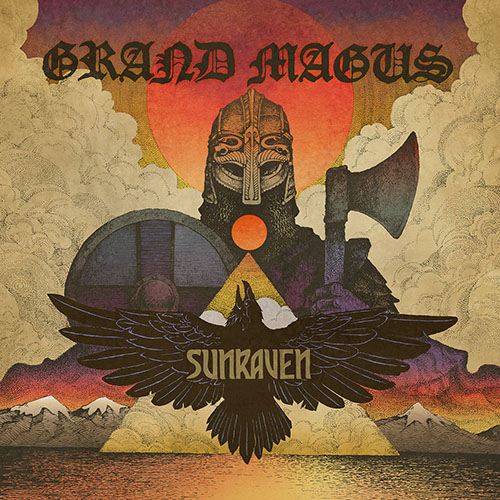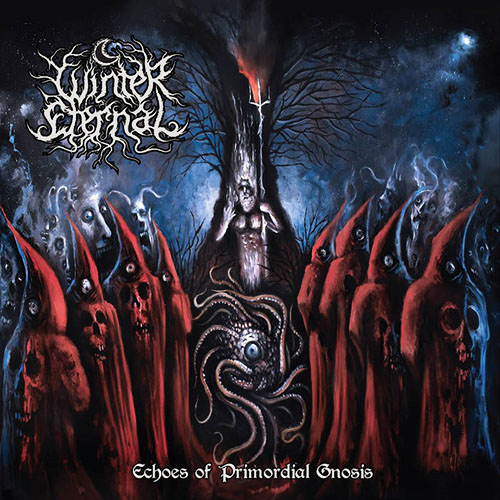Year: 2020
Total Time: 26:16
Label: Self-Financed
The new release from the camp of the Athenian guitar virtuoso GEORGE CONSTANTIN KRATSAS, “The First Alchemist”, was not an easy one to review. With the collaboration of Nikitas Mandolas on drums, Tasos Seremetis on oud and Mora offering her vocals on the track “Clockwork Giant”, “The First Alchemist” is a breathtaking, technical and energetic instrumental effort with a twist (actually two): the leading role of a symphonic orchestra and an oud.
There’s a ton of information for the listener to process, from the prominent guitar riffing and soloing and the exceptional drumming to the multilayered orchestral passages, the mixture of oriental and western instruments, the combination of atonal, modal and traditional elements and the use of cinematic sound effects, everything is combined skillfully to create a surreal, magical world. With all the aforementioned taken into consideration, it might be that mr KRATSAS is the true alchemist who uses diverse and even mismatched musical elements to transform or create something through a seemingly magical process.
The homonymous first track of the album functions like an overture. Preparing his audience for what’s about to come, mr KRATSAS presents the instruments and sets the tone of the album. We have the oriental strings, the neys and the oud, the cinematic atmosphere and of course the guitar-bass-drums ensemble.
The playful ostinato which kickstarts “His dark materials” that follows, evolves into an entire djent-prog theme before exploding into an epic cinematic dialogue between the orchestra and the guitar with a surreal atonal brake and a beautiful neoclassical solo afterwards.
A more atmospheric moment comes with the “Clockwork Giant” which follows the same structure: single instrument ostinato intro and development-brake-reintroduction of a theme variation before the finale. Mora’s vocal lines decorate beautifully the composition. “Cataclysm” is the fourth track with a beautiful oriental passage where the oud shines and with lead guitars in the style of the early Vinnie Moore era. Beautiful melodies and feel, speed and technicality, all the elements are there in their most balanced form.
In the same universe we find “The ark of the covenant” that follows.
“Sigillum dei” (the god’s seal) starts with a well-structured oud taksim wondering in the hijaz maqam family (like a lydian dominant for the western musicians) and introduces the last track “Lost archives” which concludes the album.
The amount of work that has been put into this album is enormous. And by this fact alone I have to say that GEORGE CONSTANTIN KRATSAS earned my absolute respect. Even if my first encounter with the album was a little bit awkward, I have to admit that after several listens it grew on me and it kept calling me back for a re-listen. Nevertheless, there are two main remarks that I feel that I have to make to be earnest with myself and the reader.
Firstly, I felt that the material was forced on me like a 26-minute cinematic trailer. When using an orchestra for a trailer everything has to be big, larger that life, unrealistic because usually you don’t have the time necessary to develop the dynamic feel naturally. With the introduction of the virtual instruments and the realistic or more often hyper-realistic orchestral sound banks, the composer has the opportunity to literally attack the listener violently with a pallet of dynamics which may vary from forte to fortississimo or even further. And that’s ok for a two-minute trailer but for an album… well it sounds a bit tiresome and even in a well-balanced mix such as the Alchemist’s, a fortissimo in the brass section has always the color of a fortissimo, lowering its volume won’t change its sound qualities and characteristics…
Secondly, the space in which everything exist musically, sounds a bit two dimensional to me, it’s more like a photo slideshow rather than a film (a feeling that totally changes for the better when I listen to the orchestral version of the album, “Alchemical Symphony”).
In “The First Alchemist” every instrument that passes in front of the listeners scope almost obliterates everything else sonically and then it gives its place to the next one and so on. Like someone watching a bunch of photos, passing the one in the front to the back as he turns them in his hands one by one.
All these being said, I have to admit that there have been many different aesthetical approaches regarding the orchestra and mine is a bit classical oriented and maybe even dated. Judging by the integrity of the material I can distinguish the composer’s intention and even if I don’t agree aesthetically with every choice he made, the album kept calling me back again and again for another listen and at the end of the day, that’s what matters most. I strongly believe that if mr Kratsas continues towards the same direction with a more in-depth study of the orchestra and its sampled counterparts, he will surely be able to provide a mixture of styles that has never been heard before in any genre. And if that isn’t the philosopher’s Stone for a composer then what is?
Rating: 7/10
Editor: Yiannis Tziallas
Related Link: GEORGE CONSTANTIN KRATSAS – Bandcamp Page
